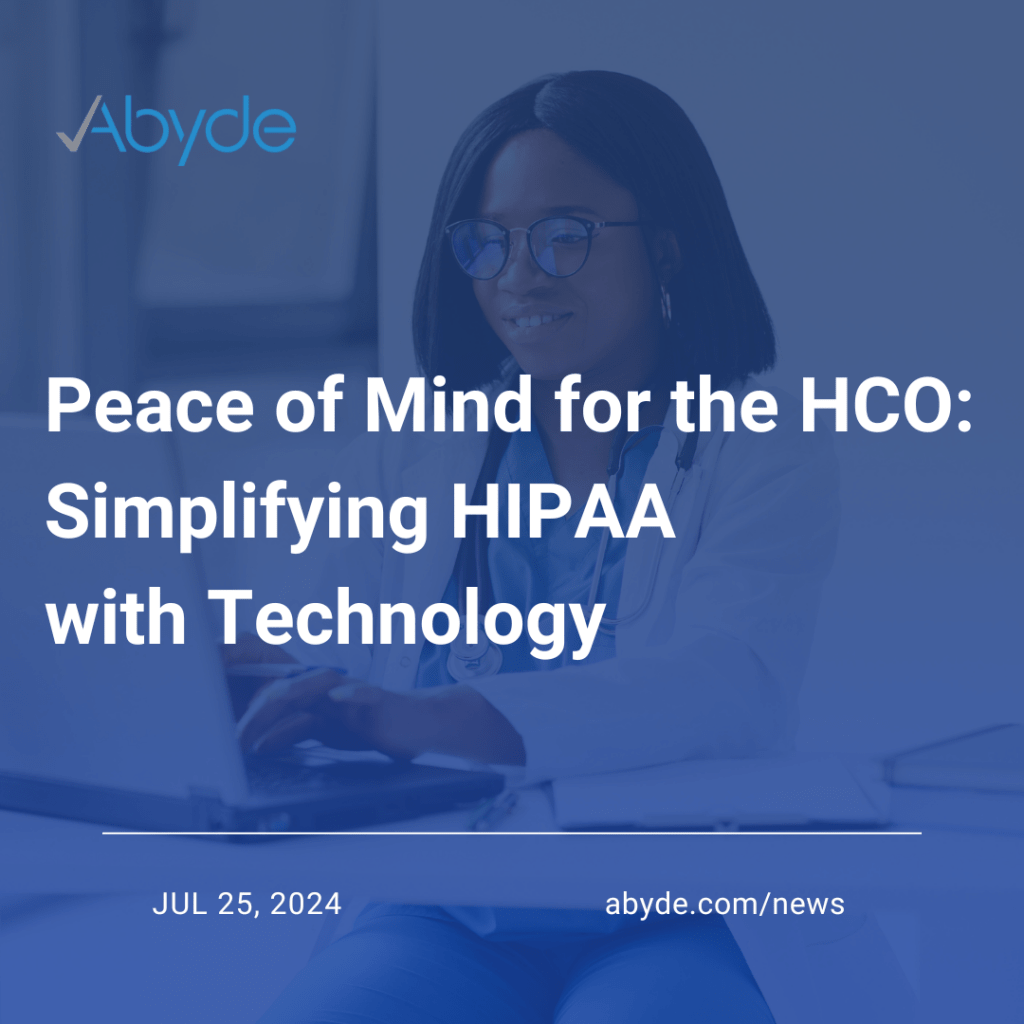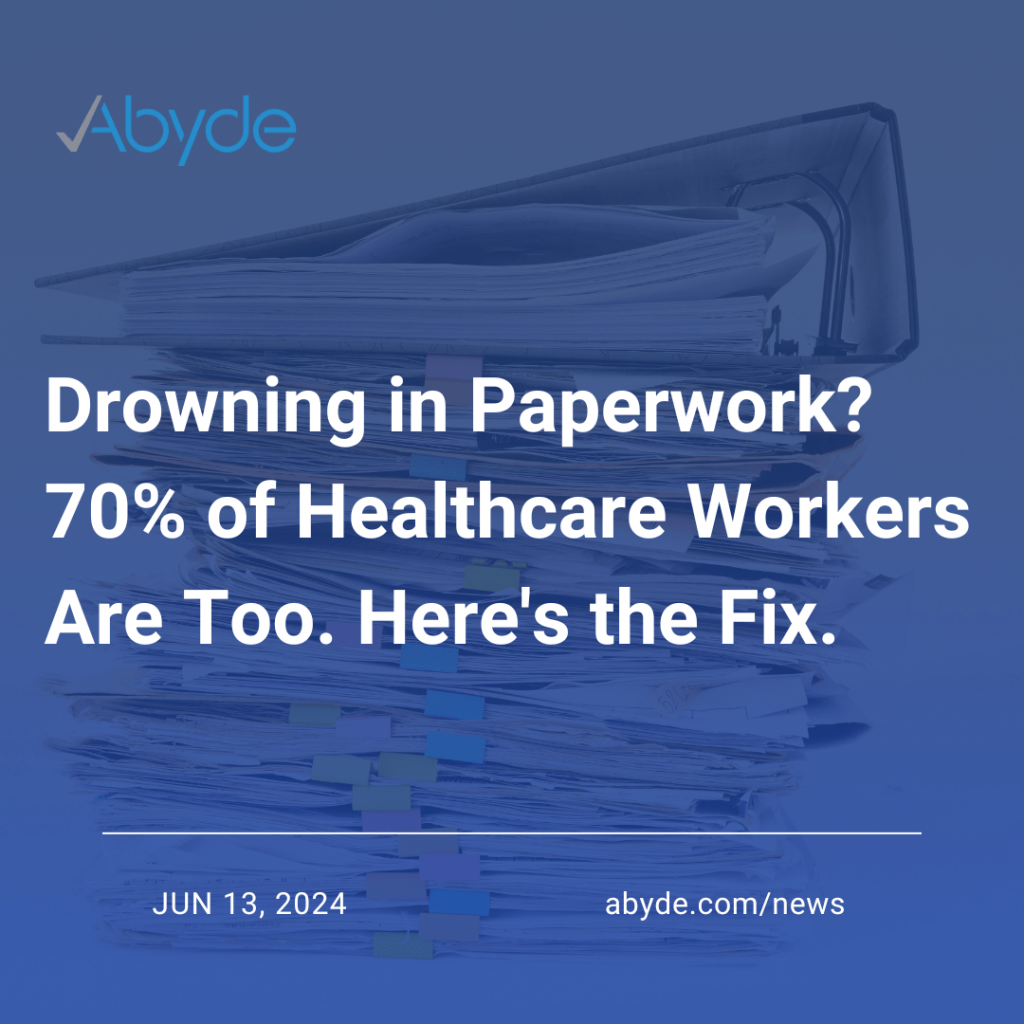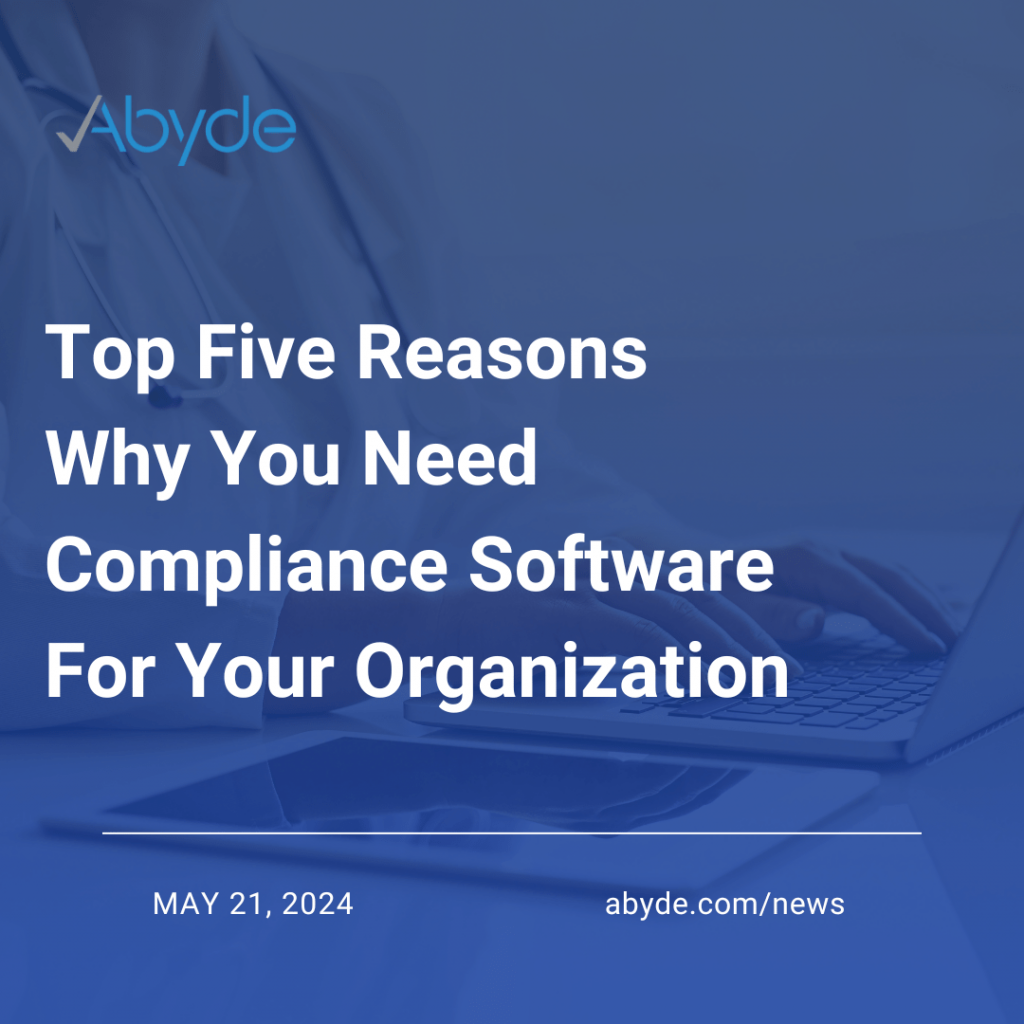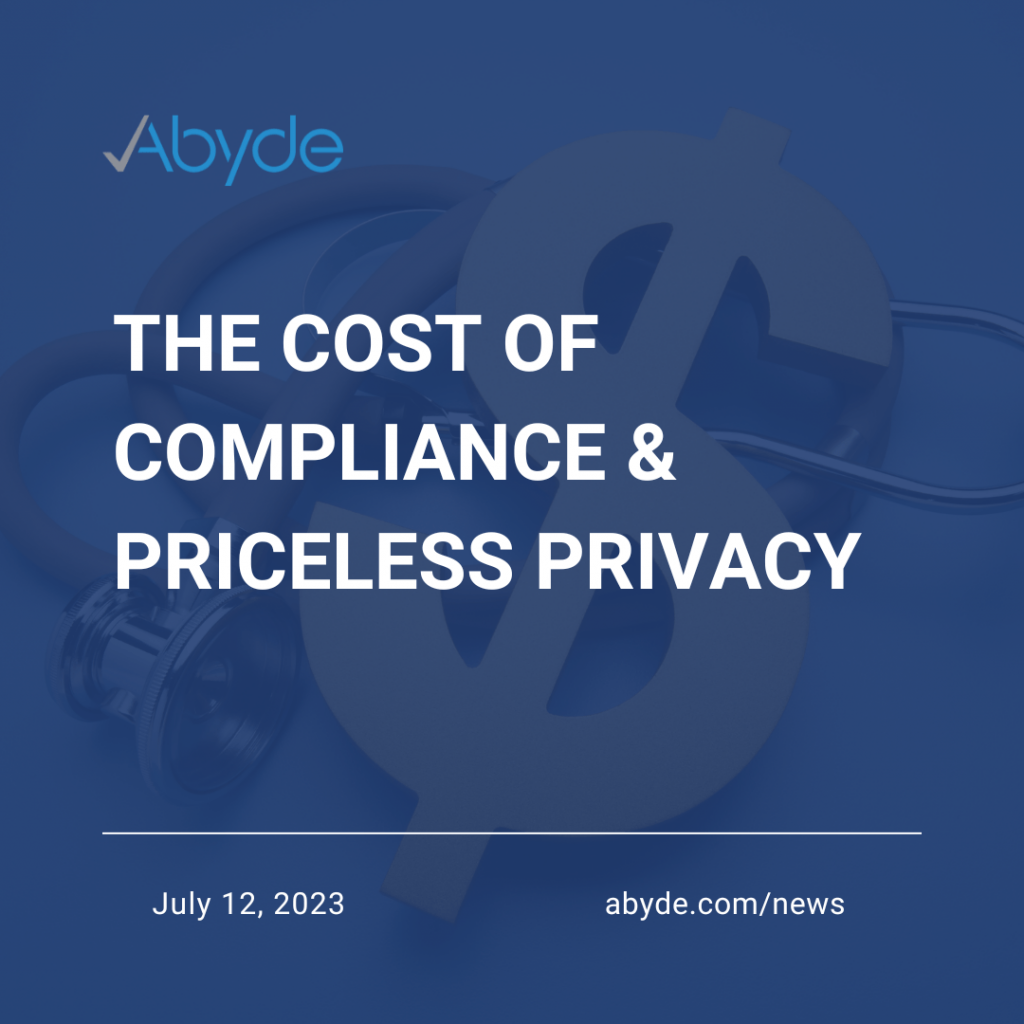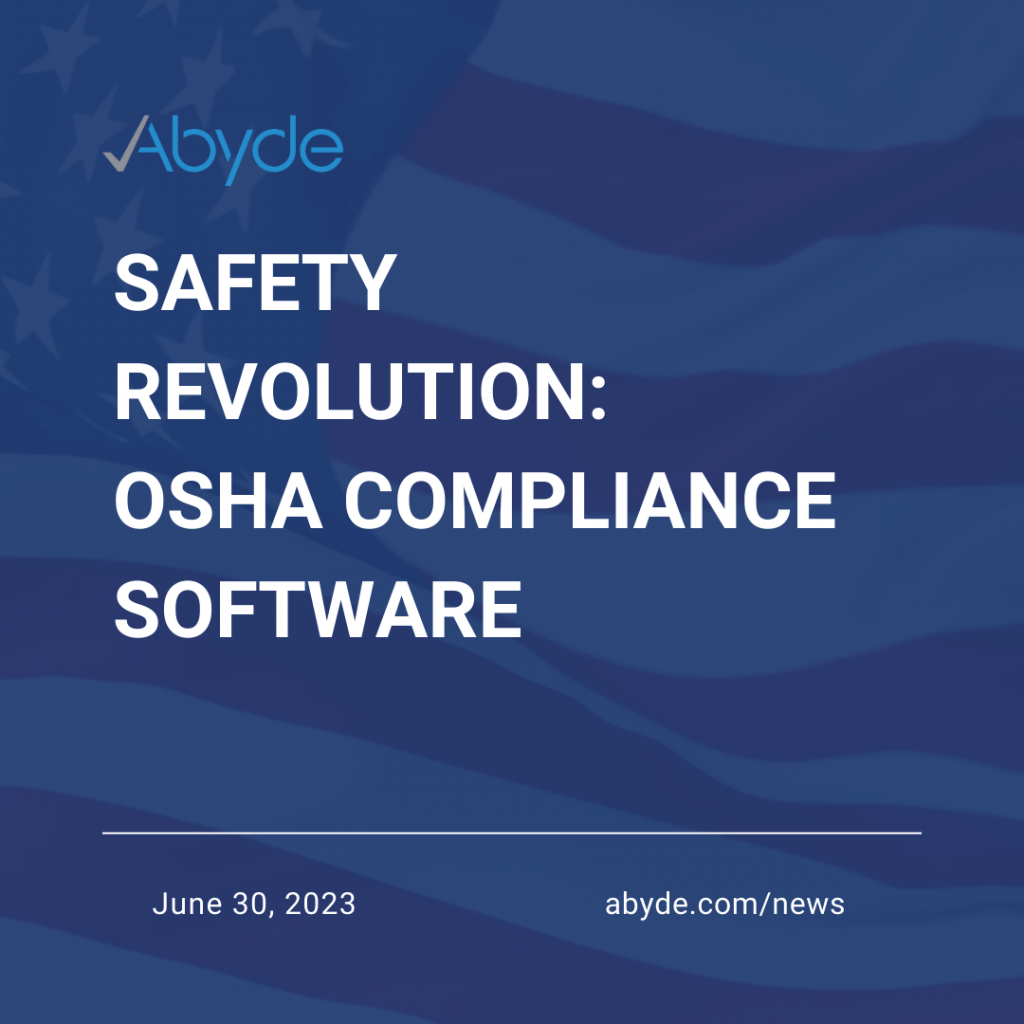July 25, 2024 Running a small medical practice is a juggling act. Staff wear many hats, and HIPAA compliance often gets squeezed in amongst other tasks. Did you know that physicians spend an average of 10 to 19 hours per week on administrative duties such as HIPAA tasks? HIPAA legislation outlines how Covered Entities and Business Associates must handle and secure patient PHI (Protected Health Information). Specifically, a HIPAA Compliance Officer (HCO) must be designated to ensure compliance maintenance. This is a significant yet essential role, and one that staff in a busy, small office have little time to attend to. Here’s the good news: There are better ways to manage HIPAA compliance efficiently if you’re the HCO. Let’s explore the key duties of an HCO and how you can handle the numerous obligations that come with the role. What is an HCO? The HCO must ensure the practice follows HIPAA requirements and sufficiently follows all physical, administrative, and technical safeguards to protect sensitive patient data. Being an HCO is a significant role and crucial for patient data security. Many HCOs wear multiple hats within an organization, such as serving as the office manager or a doctor. This can sometimes feel overwhelming, but it’s important to remember that HIPAA compliance is a shared commitment. Just like a conductor leads an orchestra, the HCO sets the tone. However, like every musician, from the violinist to the triangle player, needs to play their part flawlessly, everyone in the organization must follow HIPAA rules to create a harmony of patient privacy. What is an HCO Responsible for? The HCO role oversees everything related to a HIPAA program. This includes managing documentation, training, reviewing updated legislation, conducting the Security Risk Analysis, and much more. As the HCO, you must ensure proper compliance with HIPAA regulations within your practice and serve as the primary resource for your staff regarding HIPAA concerns. You also need to uphold patient access rights and ensure patients receive their medical records promptly. In case of a HIPAA violation or breach, the HCO will investigate and report the situation to the Office for Civil Rights (OCR) accordingly. The HCO acts as the main point of contact for the OCR and serves as the liaison if further investigation is required. Sounds like a lot of work, right? The Cure for HCO Stress By now, you know the role of an HCO is complex and can be time-consuming, especially when the individual manages numerous roles in a practice. The time spent on HIPAA tasks reduces the time available for patient care and other tasks. Inaccurate documentation due to human error can also lead to non-compliance with federal standards, adding stress and complexity to an HCO’s role. Many HCOs have their trusty HIPAA binder bursting with disorganized documentation. While this physical documentation might be an easy band-aid for an organization, as HIPAA continues to evolve, your binder should too. We can all agree there are much more enjoyable activities than handling HIPAA documentation. That’s where smart software solutions can streamline compliance for a practice. Instead of taking hours each week, this process can be reduced to minutes with intelligent software that can identify vulnerabilities and provide insights for improvement. That sounds a lot better, right? To learn more about how to streamline your compliance program, saving time and cost and providing peace of mind for the HCO, schedule an educational consultation today with an Abyde expert.
Drowning in Paperwork? 70% of Healthcare Workers Are Too. Here’s the Fix.
June 13, 2024 Did you know that more than 70% of healthcare workers spend over 10 hours a week on paperwork? When working in healthcare, the last thing you might expect is to spend most of your time on paperwork, but it’s a reality for many. Paperwork might seem monotonous and time-consuming, but it’s a crucial requirement for HIPAA. Your compliance program must be documented to prove you’re protecting your patients. Why can’t I use templates? It’s essential to avoid cutting corners with compliance paperwork. Personalized documentation is key, so using templates isn’t compliant. Templates are generic, whereas documentation represents the specific policies and procedures for your location that must be followed to protect your patients’ PHI (Protected Health Information). Many policies and procedures are required to ensure staff safety and PHI. Some examples include the Disaster Recovery Plan, the Breach Notification Policy, and the Electronic Data Disposal Policy. They must be personalized for your practice, such as including local emergency phone numbers in the Disaster Recovery Plan or defining specific roles and responsibilities in policies. Additionally, if responsibilities change, policies and procedures must be updated, ensuring the latest info is documented. By drafting personalized documentation, your practice ensures its staff knows their responsibilities regarding protecting PHI and the procedures that must be followed. What else is required documentation? Drafting documentation is the first step, but organizing the content is just as important. Policies and procedures should be easily accessible so staff can review them effortlessly. In any situation, your team should be able to access the plan quickly, stay calm, and review the documentation. The documentation should also be clear and understandable for the staff. Staff should have easy access to policies and procedures, which should be reviewed during onboarding to provide new employees with the necessary resources. How Software Solutions Can Help In the past, documentation was often seen as an overwhelming, overflowing binder, but that doesn’t have to be the case. As technology advances, your compliance program needs to keep up as well. Nowadays, healthcare workers can use software solutions to create personalized documentation quickly. Software solutions can help eliminate the possibility of human error and utilize cutting-edge technology to dynamically generate policies that meet the latest requirements in the healthcare industry. Almost all healthcare employees spend numerous hours every week on paperwork. So why not significantly reduce the time spent on these activities and achieve compliance in minutes? Software rapidly creates personalized documentation, including staff names and responsibilities, and provides organizational structure. Instead of disorganized physical binders, you can have an intuitive solution with policies and procedures hosted in the cloud that are easily accessible with an internet connection. To learn more about how Abyde can save your practice countless hours on documentation, schedule a software demo.
Top Five Reasons Why You Need Compliance Software For Your Organization
May 21, 2024 As a healthcare provider, staying updated on evolving regulations is crucial to protecting your practice, its reputation, and its patients. But complying with regulations can be daunting; even the most diligent teams face challenges. In light of the recent Change Healthcare Breach, it’s more important than ever for practices of all sizes to reevaluate their compliance approach. This is where automated compliance software provides an excellent solution to streamline, simplify, and secure the process. This blog post explores the benefits of intelligent software compliance programs for protecting your practice in place of manual compliance efforts and how software can help you succeed. Top Five Reasons Why You Need Compliance Software 1: Automate Tasks & Reduce Manual Work An average manual HIPAA audit can take anywhere from several hours to several months to complete. When patient care is the focus, this is wasted time. Intelligent, user-friendly software assists practices in understanding the process and managing their time efficiently. With algorithms running the program, employees can dedicate more time to patient care, optimize workflow, efficiently schedule appointments, and reduce wait times. 2: Avoid Fines with Compliance Software The average cost of a HIPAA fine in 2023 was $321,269. In comparison, investing in software is much less expensive than a potential fine, saving practices hundreds of thousands of dollars with preventative measures. Ensuring ongoing compliance is the key. Software simplifies necessary processes to ensure compliance, potentially reducing common infractions that result in fines and penalties. 3: Effectively Manage Risk HIPAA is highly detailed and demanding, requiring practices to maintain meticulously documented and ongoing compliance programs. With centralized documentation, integrated Security Risk Analysis (SRA), and automated ongoing risk monitoring, risk can be mitigated. Software can dynamically generate policies and reporting, streamlining cumbersome processes. With thorough reporting, organizations can make informed decisions and proactively identify gaps. Stronger risk management protects practices against threats to their reputation, finances, and operations. 4: Develop a Thorough Understanding of Compliance Understanding the regulations is essential for maintaining HIPAA compliance. Access to comprehensive training and up-to-date resources to ensure compliance is another advantage of software solutions. Regular training establishes a foundation for your organization to foster a culture of compliance. Software companies also provide dedicated support teams to assist your practice with questions. 5: Stay Ahead of Regulations The Office for Civil Rights is always improving and updating HIPAA rules to keep up with the latest technology and practices. Melanie Fontes Rainer, the director of the OCR, recently discussed the HIPAA Security Rule, stating that HIPAA is technology-neutral and scalable, but it doesn’t reflect how we receive healthcare today. This is particularly important considering the OCR has recently issued new HIPAA and online tracking guidelines. As technology advances, so does regulation. Changes in regulations are challenging to keep up with. Alternatively, software is regularly updated to align with compliance changes, simplifying reviews of the evolving healthcare landscape. You can minimize risk and stay compliant by receiving the latest HIPAA updates from your software provider. How Abyde can help Manually managing HIPAA compliance can be risky and error-prone, leaving your practice exposed. Instead, you can easily navigate requirements and safeguard your practice while saving significant hours and costs. All while promoting a culture of compliance through staff education on regulations and requirements, it’s all possible with software by Abyde. To learn more about ensuring your practice is compliant, email info@abyde.com and schedule an educational consultation.
The Cost of Compliance & Priceless Privacy
July 12, 2023 In a world where data privacy is paramount, and breaches make headlines faster than the speed of light, there’s a heavyweight champion ruling the healthcare industry—HIPAA (Health Insurance Portability and Accountability Act). While its intentions to protect patient data are noble, we often overlook the less glamorous side of HIPAA: the significant financial burden it imposes on healthcare providers. What’s worse? The cost of noncompliance. 1. The H for “Hefty”: When it comes to the cost of HIPAA, the first letter of the acronym seems to stand for “Hefty.” Implementing the necessary administrative, technical, and physical safeguards to protect patient data can be a financial mountain to climb. From implementing secure IT systems to training staff and conducting regular audits, healthcare providers find themselves pouring precious resources into HIPAA compliance. 2. Compliance: The Ultimate Budget Sinkhole: While maintaining patient privacy is crucial, it’s no secret that HIPAA compliance can drain the pockets of even the most financially prepared institutions. Investing in updated technology, encryption, firewalls, and secure storage systems can cost an arm, a leg, and a few digits from your credit card pin. Suddenly, the “HIPAA” acronym takes on a new meaning: “Hazardously Intricate Price for Administrative Assurance.” 3. The Cost of the Inevitable “Oops”: Despite the best precautions, data breaches can still rear their ugly heads. The cost of mitigating the aftermath of a breach can send chills down the spines of healthcare providers. In addition to the financial implications, there’s the added toll on reputation, patient trust, and potential lawsuits. So, while HIPAA compliance can be expensive, the cost of non-compliance and its consequences is an even more bitter pill to swallow. 4. Training: The Education of Expensive Minds: To stay compliant with HIPAA regulations, healthcare providers must educate their staff on privacy policies and procedures. However, the cost of training programs, workshops, and seminars can feel like a merciless attack on your budget. With every mandatory training session, the price tag keeps growing. So, remember, when you’re shelling out for HIPAA compliance, you’re also investing in a future where your staff knows their way around patient privacy like a seasoned secret agent. 5. The Silver Lining of Investing in Privacy: While the cost of HIPAA compliance might seem overwhelming, it’s crucial to remember the underlying purpose of these regulations. HIPAA aims to protect patient data from falling into the wrong hands, ensuring their privacy and security. Ultimately, the investment in HIPAA compliance is an investment in patient trust, confidentiality, and the overall integrity of the healthcare industry. The cost of HIPAA compliance can indeed be a bitter pill to swallow for healthcare providers. From the financial burdens of implementing robust systems and training programs to the potential aftermath of data breaches, it’s a financial journey that requires careful navigation. However, it’s essential to view this investment as an opportunity to reinforce patient trust and safeguard sensitive information. So, while the price tag might be hefty, the benefits of HIPAA compliance far outweigh the cost. To alleviate the challenges and costs associated with HIPAA compliance, healthcare providers often seek the assistance of specialized compliance solutions. Abyde understands the complexities of HIPAA and offers a comprehensive suite of tools to simplify compliance processes. With our user-friendly platform, healthcare providers can navigate the intricacies of HIPAA regulations without breaking a sweat (or the bank). By leveraging Abyde’s services, practices can automate various compliance tasks, such as risk assessments, custom policy creation, employee training, and incident response. The Abyde all-in-one solution is designed to streamline the compliance journey, reducing the time and financial investments required. Practices can benefit from personalized support and up-to-date resources to stay ahead of the ever-evolving regulatory landscape. By partnering with a trusted compliance partner like Abyde, organizations can focus on delivering quality care while maintaining the highest standards of data privacy and security. Remember, when it comes to HIPAA, the price of privacy is priceless.
Safety Revolution: OSHA Compliance Software
June 30, 2023 Just as the American Revolution transformed history, a new revolution is taking place within workplace safety in healthcare. No need to dump tea in a harbor or worry about British troops; this time, it’s Abyde revolutionizing the power of Occupational Safety and Health Administration (OSHA) compliance with software that is empowering practices to ignite a safety revolution of their own. OSHA compliance software is leading the charge in transforming safety protocols, just as the American Revolution forever changed the landscape of nations. Declaration of Compliance Independence Similar to the Declaration of Independence, which boldly stated the rights and freedoms of the American people, Abyde’s OSHA compliance software established a new declaration of compliance independence for healthcare organizations. With its streamlined documentation and record-keeping capabilities, practices can be liberated from the shackles of manual paperwork. Digital tools enable the centralization of safety data, maintenance of accurate record keeping, and empowerment to exercise compliance efficiently and confidently. Safety Patriots OSHA is the king of workplace safety, but we’re not fighting it! Implementing OSHA compliance software creates a league of safety patriots within practices. Real-time monitoring and reporting features provide a vigilant eye on workplace safety, equipping organizations to identify and address hazards promptly. Revolutionary Training Camps OSHA compliance software like Abyde’s establishes revolutionary-battle-worthy training camps within practices. Comprehensive training modules and educational resources equip employees with the knowledge and skills to champion workplace safety. Ongoing training cultivates a sense of responsibility. It empowers employees to participate in their own safety actively. Regulatory Patriots The American Revolution fought against oppressive rule and unfair regulations. OSHA empowers organizations to become regulatory patriots. By automating the monitoring of regulatory changes and providing timely updates and notifications, Abyde ensures that practices stay informed and compliant. This ability to adapt and navigate the regulatory landscape helps practices avoid compliance lapses and assert their independence in maintaining a safe working environment. United Front During the American Revolution, unity was crucial for successfully crushing the British. Abyde’s OSHA compliance software fosters a united front for safety in healthcare. Collaborative tools within the software such as risk assessments, custom safety policy and procedure generation, record maintenance, and employee training enable seamless communication and coordination. This united front for safety ensures that every individual is invested in the well-being of their colleagues, just as the Americans did in pursuit of freedom. As the American Revolution paved the way for a new era of governance, Abyde’s revolutionary OSHA compliance software is transforming workplace safety practices in healthcare. Not by fighting a monarchy across the sea but by freeing organizations from the burden of manual compliance, OSHA revolutionizes safety in the modern workplace. Embracing the spirit of independence, practices can create an environment where safety is prioritized, accidents are minimized, and employees can thrive.
Beat the Heat & Cool Off With Compliance
June 14, 2023 As summer rolls around, it’s not just the season that’s changing. In the world of healthcare, compliance is a continually evolving landscape, with regulations like the Health Insurance Portability and Accountability Act (HIPAA) and the Occupational Safety and Health Act (OSHA) often seeing updates. As the days get longer and the temperature rises, it’s the perfect time to perform a summer refresh on your HIPAA and OSHA compliance. Take a HIPAA heat check! HIPAA was passed to ensure the confidentiality and security of healthcare information. HIPAA compliance can be considered a sunscreen – it protects sensitive patient health information from getting ‘burned’ or leaked. Just like you apply and reapply sunscreen to ensure ongoing protection, it’s essential for practices to assess and periodically reassess HIPAA compliance strategy. With ever-advancing technology that provides more avenues for patients and providers to communicate and share information, the need for HIPAA compliance increases. Any application or platform that handles Protected Health Information (PHI) must be HIPAA compliant to ensure the confidentiality and integrity of such information. This summer, review digital systems and practices to protect patients’ sensitive data as carefully as you would protect your skin. If HIPAA compliance needs sunscreen, Abyde is SPF 100! Did you know if you put a seashell up to your ear, you can hear the OSHA? OSHA creates and enforces regulations to maintain safe and healthy working conditions. Just like a lifeguard oversees the beach’s safety, OSHA watches over your practice’s safety environment and regulations. As the summer’s heat rises, OSHA reminds us to ensure safe and healthy conditions for our workers, taking adequate measures against heat-related illnesses, overexposure to the sun, or other safety risks related to the summer season. Don’t let your practice have a double-red out this summer. Maintaining compliance isn’t a one-and-done task but a continuous process, much like the seasons that come and go. You always prepare to protect yourself from the sun and heat. Why not do the same for your practice and patients? Abyde beats the heat on HIPAA and OSHA compliance so you can sit back, relax, and enjoy a culture of compliance that’s as unending as the summer sun.
